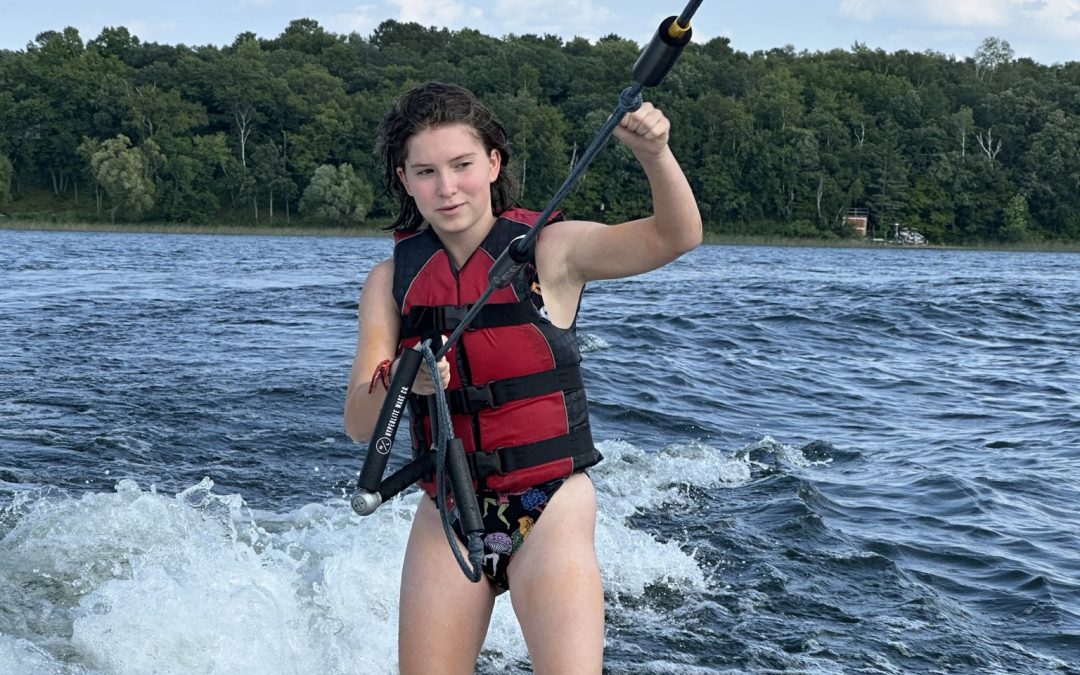The following is a post written by our longtime camper and counselor, Jessica Kubert, who graduates from high school this year and is off to college. But first, she’ll spend another summer at Kamaji as a cabin counselor and fishing instructor!
Fourth grade was the start of my notorious tie-dye phase. It was also the year I started to worry about what other people thought of me. My cousin had just given me a hand-me-down tie-dye tank top over the weekend, so of course I had to wear it to school that Monday. I was in Ms. Mundy’s Language Arts class and we were discussing Shiloh (which I named my new puppy after at the end of the year because she looked like the dog on the cover). I raised my hand to talk, per usual, but this time Isaac Silver, the grade bully, was sitting next to me and shouted out, “Ew your armpits are so hairy, that’s disgusting.” I was humiliated. I’d never felt this way before, as if the way I looked and acted offended him and I needed to change it.
I just read an article about Camouflaging: the stage in life, between ten and forty, when “a girl lives her life as someone she thinks will be accepted by everyone else.” Girls are under immense amounts of pressure to be agreeable, likable, and attractive. We are constantly sent messages, even if they are often under the surface, that how we look is more important than how talented, kind, or smart we are. For me this has meant speaking out less in class, wearing skinny jeans instead of sweatpants, and being hyperaware of what I eat for lunch every day. The thing is, these actions aren’t problematic in themselves; it’s the pressure to do them and the inability to choose not to, for fear of being made fun of or left out, that causes the problem.
I am lucky to be able to spend nine weeks a year away from the stress of Camouflaging myself every day. By the end of the summer I have regained much of the confidence and self-acceptance I felt pre-fourth grade. I hate leaving camp every year because I know I’m going to miss my friends, my campers, and the beautiful Northwoods but also the version of myself that I love most: loud, stress-free, and a little bit ridiculous. Camp gives us the power of choice that we don’t get at home. During the school year I am expected, almost required, to dress up for school, to not be too assertive, and to shave my armpits; at camp I can do all of those things if they make me feel happy and comfortable but by no means is my status or value as a woman determined by them.
I have a friend who decided one summer that she wasn’t going to shave her legs for an entire session, because who wants to deal with the hassle of that anyways. No one talked about her behind her back or thought she was weird– in fact I liked her even more because of it. It was a courageous thing for her to do but at the same time really not a big deal at all, because at camp no one cares about how you look or how soft your legs are. We only care about how you treat others.
The always wise and enlightening Oprah Winfrey once called this phenomenon “the disease to please.” It is something that has infected generations of women, so how do we find our voices and our selves again? Well, I think it starts at camp. Kamaji allows us to be our authentic selves again, and as difficult as it is, we need to bring those selves back home with us. At the end of the summer recognize how good it feels to be loved for who you really are, not a version of yourself you’ve camouflaged into. Take that confident spirit and hold onto it because both you and the world are better when girls shine their brightest.
Read more about Camp Kamaji: https://kamaji.com/news/

